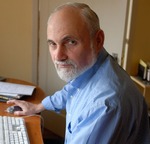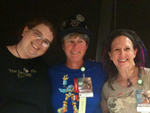Eric Maisel talks about Productive Obsessions (Books and Ideas #39)
/Eric Maisel, PhDEric Maisel, PhD is a prolific author and his latest book Brainstorm: Harnessing the Power of Productive Obsessions challenges the assumption that all obsessions are bad. In Episode 39 of the Books and Ideas podcast we talk about how to cultivate what Maisel calls "productive obsessions." We also talk about the relationship between creativity and meaning. Dr. Maisel emphasizes the "necessary paradigm shift from seeking meaning to making meaning." Such a shift offers the possibility of making meaning out of any life circumstance.
Episode Transcript (Download PDF)
Links and References:
Eric Maisel, PhD: author and creativity coach
Brainstorm: Harnessing the Power of Productive Obsessions by Eric Maisel and Ann Maisel
The Atheist's Way: Living Well Without Gods by Eric Maisel
This month's pick from Audible.com: The Moral Landscape: How Science Can Determine Human Values by Sam Harris
Announcements:
The Books and Ideas podcast application is now available for Android
The Books and Ideas website is now hosted at /. Be sure to update your book marks.
This marks the 4th Anniversary of the Books and Ideas podcast. I intend to continue the show in 2011 on a reduced schedule. It will be on an alternate month schedule with the Brain Science Podcast. If you want to be notified about new episodes sign up for my newsletter.
The Brain Science Podcast was nominated as Best Science Podcast in the 2010 People's Choice Podcast Awards. The Winner was The Skeptics Guide to the Universe. SGU's host Dr. Steven Novella was interviewed on Books and Ideas back in episode 16.
Don't forget to join the Books and Ideas Fan Page on Facebook.
Send your feedback to gincampbell at mac dot com or leave voicemail at 205-202-0663.























